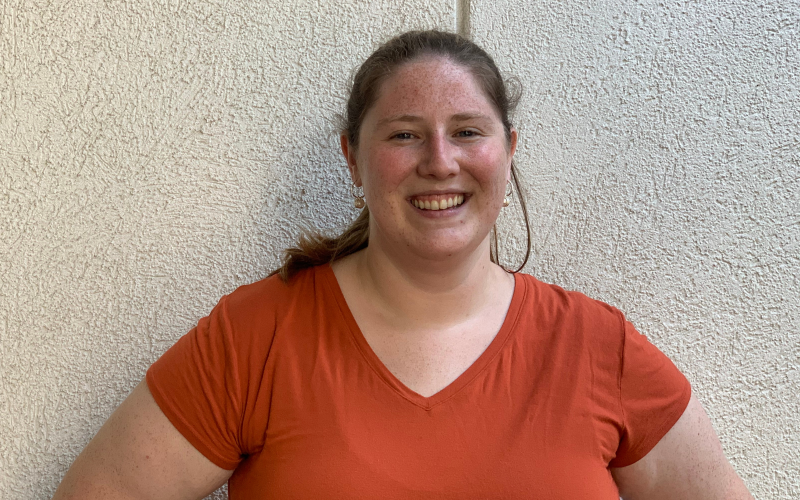Meet Kacey Griffin: CDPHP Scholar

By Erin Gilmore, MPH/MSW student and Graduate Assistant
ALBANY, N.Y. (December 8, 2021) - As a CDPHP Scholar and MPH student, Kacey Griffin hopes to increase equity in female fertility treatment by minimizing the effect socio-economic status plays in accessing healthcare. With the support of CDPHP and the skills provided at UAlbany, Griffin has already started making strides to achieve this goal.
As a child, Griffin was exposed to the social inequities that impact health firsthand. Despite the difficulties associated with growing up in an affluent neighborhood as a low income student, Griffin received a full scholarship to support her undergraduate education at Rutgers University.
At Rutgers, Griffin studied genetics and researched female fertility, which introduced her to infertility as a public health crisis. It quickly became a passion, and to learn more, she applied to the MPH program and the Maternal and Child Health graduate certificate program. In the interim, Griffin was met with financial obstacles as she worked for organizations that built her resume but did not equip her with the financial security necessary to continue her education.
“The CDPHP scholarship allowed me to pursue graduate school much sooner than I anticipated by allowing me to save money for tuition and living expenses,” says Griffin.
After being awarded the CDPHP Scholarship, Griffin was selected to work with the Utah Department of Health Title V Program. She and her colleagues continued the implementation of the Alliance for Innovation on Maternal Health safety bundle for pregnant and postpartum persons with opioid use disorder. They developed and executed informant interviews with local health departments and advocates with lived experiences. Subsequently, they took the information gathered from the interviews to create public-facing recovery resources that the local and state health departments could utilize. Griffin also helped to create a comprehensive list of all recovery services in specific counties for providers to issue to patients.
“I am hoping to switch into private sector organizations in an effort to increase equity in the female fertility treatment niche of maternal and child health. Currently, many fertility clinics and family expansion services are limited to wealthy individuals and families. One's wealth should not be the determinant of their ability to access fertility services,” says Griffin.


